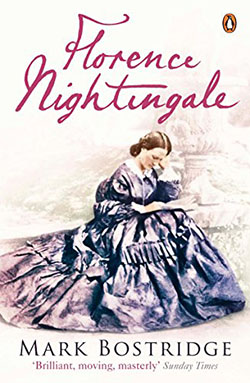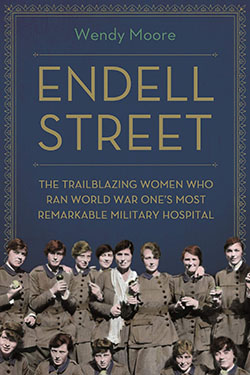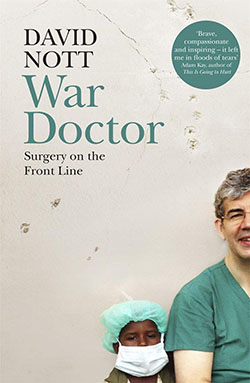This month, as I applaud the courage and incredible lifesaving work of our front line nurses, is an appropriate time to remember the 200th anniversary of the birth of Florence Nightingale, a pioneer of British nursing and someone who understood how disease could devastate human life.
Florence was born on 12 May 1820 and named after the Italian city she was born in. She came from a wealthy family background and had a privileged education where she excelled in mathematics and languages. Although somewhat of an intellectual, Florence preferred to read the great philosophers of her time and had an interest in politics. But unlike other young girls, she rejected the more traditional female skills of ‘home management’ and decided that nursing was her calling rather than marriage.
In the early 1850s after her training, Nightingale took her first nursing job in a Harley Street hospital and around the same time, volunteered at a Middlesex hospital, grappling with a cholera outbreak and dealing with the unsanitary conditions that caused the spread of the disease.
By 1853, the Crimean War broke out and Nightingale was put in charge of nursing British and allied soldiers in Turkey, who were mainly dying from typhoid and cholera. It was through her experience and knowledge that Florence managed to reduce the death rate by two thirds in the hospitals, and while spending many hours caring for the wounded in the wards and on her night rounds, she famously became known as the ‘Lady with the lamp’.
Based on her observations in the Crimea, Nightingale wrote ‘Notes on Matters Affecting the Health, Efficiency and Hospital Administration of the British Army’ and proposed reforms and recommendations for hospitals operating under poor conditions. The British government eventually recognised her contribution to nursing and awarded her a sum of money, which she used to further her cause. In 1860, she funded the establishment of St Thomas’ Hospital, and within it, the Nightingale Training School for Nurses.
Florence Nightingale, statistician and social reformer and the foundational philosopher of modern nursing, became a figure of public adoration for her work, influencing worldwide health care reform and highlighting nursing as an honourable vocation for women.

To find out more about this inspirational lady, ‘Florence Nightingale: The Woman and Her Legend’ is a fascinating book that draws on a wealth of unpublished material and previously unseen family papers. It describes her tireless campaigning and staggering intellectual abilities, her tortured relationship with her sister, and the distressing medical condition she had. This vivid biography gives a gripping account of courage and determination of one of the most iconic figures in modern British history.
In 1914, when the First World War broke out, two suffragette doctors – Louisa Garrett Anderson and Flora Murray (who were life partners) – suspended their campaigning to set up two small military hospitals in France. Then in 1915, Flora and Louisa were asked by the War Ministry to return to London to establish a new military hospital in Covent Garden’s Endell Street … which they did.
This unique suffragette hospital, living by the motto ‘Deeds not Words’, was the only hospital within the British Army to be staffed by female surgeons, doctors and nurses. However, it was not without opposition from the Royal Army Medical Corps.
During the five years the hospital was active, some 26,000 patients were cared for and following the end of the war and the Spanish Flu outbreak in 1918, Anderson and Murray each received the CBE for their work, before Endell Street closed its doors in December 1919.

This true story of two pioneering suffragette doctors is told in ‘Endell Street: The Suffragette Surgeons of World War One‘, and describes how they transformed modern medicine, raised standards for patient care, and, like Nightingale, shattered social expectations for women in First World War-era London.
It is a brilliant and meticulously researched book, describing the horrors and thrills of wartime London while remembering the bravery of an extraordinary group of women.

More recently, we have seen doctors and nurses work in some of the world’s most dangerous war zones. One doctor in particular, David Nott, tells his own story in ‘War Doctor: Surgery on the Front Line’.
This book describes his experience as an NHS vascular surgeon who takes unpaid leave to volunteer in life-saving operations and perform field surgery in some of the most challenging conditions on the front line – from Sarajevo under siege in 1993, to clandestine hospitals in rebel-held eastern Aleppo, in addition to the war zones of Afghanistan, Sierra Leone, Liberia, Darfur, Congo, Iraq, Yemen, Libya, Gaza and Syria.
He has also volunteered in areas blighted by natural disasters, such as the earthquakes in Haiti and Nepal. Driven by compassion and the thrill of extreme personal danger, he is now widely acknowledged to be the most experienced trauma surgeon in the world.
Please note: The National Archives shop is closed currently, but don’t despair as these books are available in e-book form or from good online book retailers.
We should not forget that there are male nurses as well, although dwindling numbers from my experience.